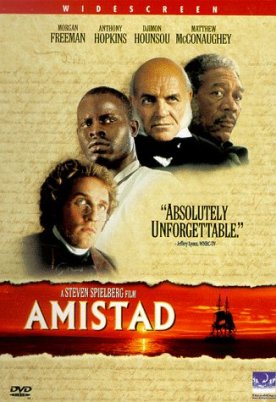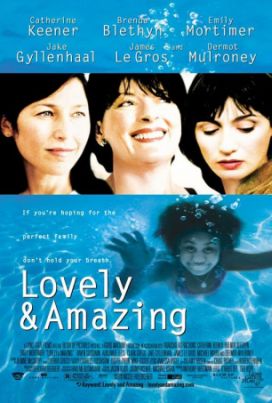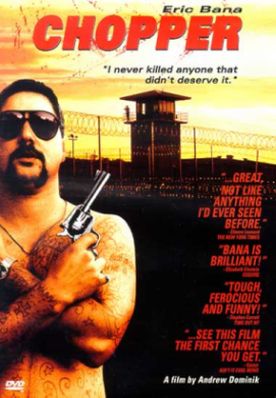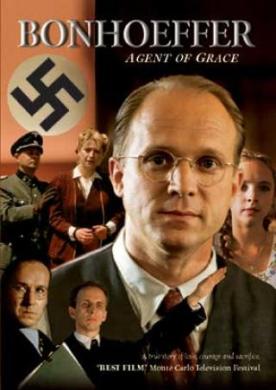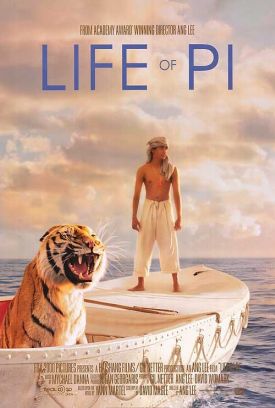Amistad
Every few years around Christmas time, Steven Spielberg feels the need to trot out his social conscience for public examination. Four years ago it was Schindler’s List, a film designed to show how bad the Holocaust was. This year it is Amistad—the story of a slave rebellion aboard a Spanish ship in 1839 which created a furore when the mutinous slaves were brought ashore by the U.S. Navy—a film designed to show how bad slavery was. Come the millennium he will doubtless expose to our wondering eyes the evils of the Babylonians under Nebuchadnezzar or the Mongols under Tamurlane. This is, as it is in all Spielberg’s films, an infantile form of moralism; but like so many other infantile things, it is the kind of moralism most to the liking of our times. One feels sure that, once again, Mr Spielberg will find himself making skillions of dollars—many more skillions than any TV evangelist to date—through the soul-satisfying means of preaching righteousness to the people.
To be sure, it is a very special kind of righteousness, and one which requires of us no more than that we should resist the temptation to gas any Jews or flog any slaves—or throw them overboard from our ships, since Spielberg also lends his prestige as a historian to the idea, derived from the lunatic fringe of the “black studies” movement, that the slavers routinely drowned their living assets. But what better kind of righteousness than that which makes us feel so comfortable with the people we have become? Given that people go to the movies in order to feel good, however, and that the visual treat Mr Spielberg has prepared for us has otherwise all that we have come to expect from him, there are still problems with the film’s dramaturgy.
The most serious of these is that there is not a single living and nuanced character to be met with in the whole two and a half hours. The one performance that is worth watching is that of Anthony Hopkins in the role of John Quincy Adams, but even he has no human side. And poor Nigel Hawthorne, as good an actor as Mr Hopkins, is left with far too little to do as President Martin Van Buren. What Morgan Freeman, as Mr. Joadson, the black abolitionist, and Stellan Skarsgaard as Mr Tappan, the head of the Anti-Slavery Society, are doing here is a complete mystery. Acting as chorus, I suppose, for the heroic defense attorney, Roger Baldwin (Matthew McConaughey). But McConaughey is way out of his depth in the role, and never comes near to convincing. This is not entirely his fault, as he is in turn required to act as chorus to the real hero, the black slave leader Cinqué (Djimon Hounsou) who is here the noble savage, the natural Christ or Moses figure who leads his people out of bondage and who suffers equally nobly as he waits for his white lawyers to put the seal of public approval on his act.
On the positive side, there is what amounts to (for Hollywood) a sympathetic treatment of Christianity as Cinqué looks at an illustrated Bible and understands enough of it to identify his own persecution with that of Jesus Christ. But paganism is the subtext. Before the Supreme Court trial, Baldwin talks about not wanting to go into the courtroom alone. “Of course you won’t be alone,” says JQA. He will have “righteousness” on his side. But Cinqué puts his trust in his ancestors, who will be backing him up: “Because for this moment, I am the sole reason they have existed at all.” This is actual pretty authentic paganism in some cultures (though I don’t know about the Mende), but it is absurd to show ostensible Christians impressed by it.
It is even more absurd to suggest a connection between Cinqué’s ancestors and the powerful magic of JQA’s illustrious father, and also the Founding Fathers generally, on whom he is seen to be calling. This is one of many anachronisms put into the ex-president’s mouth. Another is in opposition to the view of Calhoun (Arliss Howard) that slavery is a natural part of man’s estate. JQA is made to thunder that “the natural state of mankind is freedom!” If he believes this, he is a fool; and as he is not a fool, we must suppose that this is the merest claptrap put into his mouth by Spielberg and his screenwriter, David Franzoni.
Or, as Morgan Freeman said in an interview with the Washington Post, “You don’t have to get into any particular frame of mind. The frame of mind was not the 1830s, but work. There are no tricks, no submersion, just put on the costume and learn the words.” Refreshingly unpretentious, you might say, but also revealing. For Freeman is quite right to say that the 1830s are irrelevant in this movie which is ostensibly about them. That is not Freeman’s fault but Spielberg’s. Instead of making us understand and sympathize the artistic other, the not-self, which is the purpose of real art, this has the much more commercial purpose of reflecting our selves back at us, and making us feel good about ourselves. Not to understand the prejudices of the past but to confirm us in our own prejudices.
Discover more from James Bowman
Subscribe to get the latest posts to your email.

